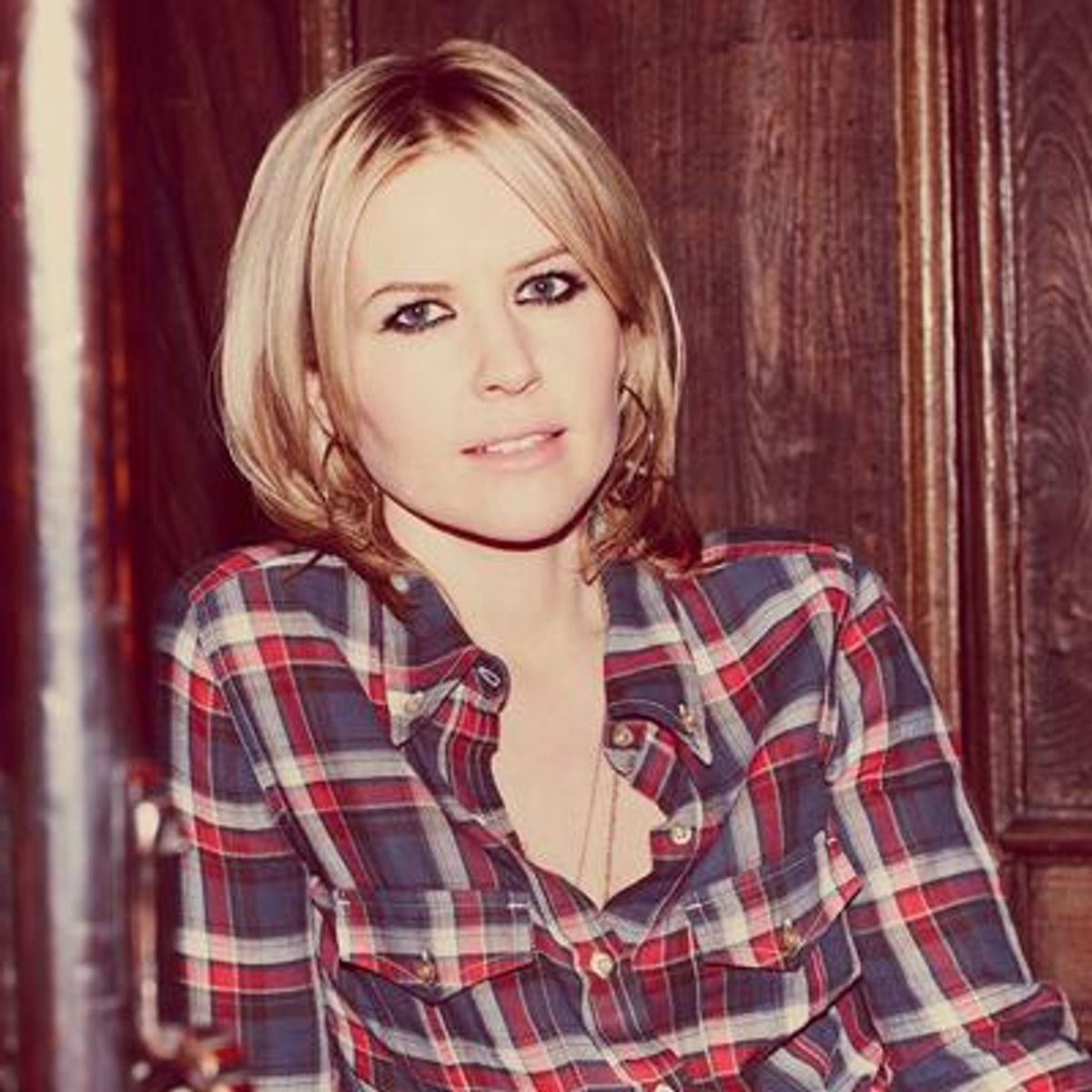
The smooth-voiced siren on her new album, her fierce LGBT following, and creating the soundtrack to life's important moments.
March 20 2013 4:43 AM EST
November 17 2015 5:28 AM EST
By continuing to use our site, you agree to our Private Policy and Terms of Use.

The smooth-voiced siren on her new album, her fierce LGBT following, and creating the soundtrack to life's important moments.
With hit singles like "Here With Me," "Thank You," and "White Flag," Dido's haunting, folky voice quickly became one of the signature sounds of the 2000s. But before she became an international superstar and one of the best-selling singers in the U.K., the artist formerly known as Florian Cloud de Bounevialle Armstrong began cultivating an LGBT fan base thanks to early performances in various dance clubs and collaborations with her brother Rollo's dance act Faithless.
Working once again with her brother, Dido has returned with a new album, Girl Who Got Away, a captivating concoction of pop, electro, folk, and hip-hop swirled with ambient and dance infusions that pays tribute to her musical past, while moving her familiar sound into new territory.
As she prepares for the album's release, available Tuesday, Dido took a moment to speak with The Advocate about why she's happy to have an LGBT following, the evolution of dance music, and creating the soundtrack to life's important moments.
The Advocate: From collaborating on tracks with his electronic band Faithless to cowriting songs with him on your solo album, you've worked closely with your brother Rollo throughout your career. What's been the best and worst part about working with such a close family member?
Dido: The best part is the love he puts into it. I feel like surely no one else could have a producer that is as passionate about their work as he is about mine. Plus, we have such a nice time working together because there's a lot of love that goes into the music. However, that passion means he can be very difficult sometimes. Especially when he doesn't like a song I've done as well as I do and gets really adamant that he hates it.
That must make for some interesting arguments.
Oh, yes. [Laughs]
With dance music being embraced by the mainstream, some people have said that the genre has lost its edge, but as an artist who got her start singing vocals for dance tracks, do you agree?
Yes, it probably has lost its edge somewhat. I think it's inevitable for something like that when it goes mainstream, but I personally don't care as long as it moves me and gives me that huge emotional rush that I love to get from dance music. As an artist, it's great music to be proud of as well. I remember times when I was singing on dance records and performing in clubs onstage and there's no better feeling than seeing people dance while you're singing. It doesn't get any better than that. It's such an immediate response and it's quite exciting. For me, it feels like home.
When did you first realize you had a large LGBT following?
Almost immediately. I think from starting in the clubs I realized right away. I was always very happy to have a gay following. There's a real loyalty there, which is pretty remarkable.
Your new album, Girl Who Got Away, manages to sound fresh as well as familiar. Did you approach the project with a desire to hearken back to your classic sound?
I guess I can't really help coming back to my classic sound. The way that I write makes it unavoidable. It's just the way I do things, but that's what gives it its familiarity. However, I'm always trying to make music that you can listen to a few years from now and it will still sound fresh. That's why Rollo is so brilliant. He brings me out of the '90s, back into the present day, and the way he layers sounds is so clever. You'll think you've heard a track and then you listen to it another time and you hear a whole new set of stuff. We're always working to keep it sounding timeless.
Will you be touring to support your new album?
Yeah, but we only just started. I've been doing some acoustic shows and with a couple of guys who are really fun, but very soon we plan to do some proper big shows too.
The lead single from your new album Girl Who Got Away, "No Freedom," can easily be interpreted as commentary on the current state of marriage equality. Was that something you were aware of when you were recording the track?
It wasn't what I was writing about, but what I love about "No Freedom" is all the different meanings that people are getting from it and attributing to it. It's about all the different forms of love, and for me, love is everything.
Because you have such a large LGBT following, you've undoubtedly heard many stories about the positive affect your music has had on their lives.
Yes. I love it when people come and tell me stories about how much a song means to them. Whether it's a wedding, starting a relationship, or even a breakup, it's an amazing thing to be the soundtrack to someone's important moment.
Viral post saying Republicans 'have two daddies now' has MAGA hot and bothered